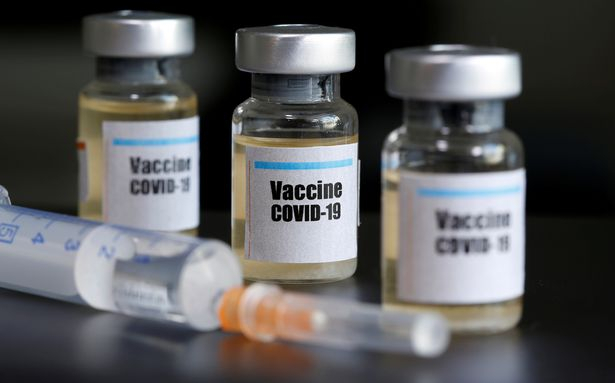
Oxford University's coronavirus vaccine is one of the top contenders of the vaccine against COVID-19. But recent reports have claimed contrasting results of the clinical trial of the vaccine on animals and humans.
It is said that the vaccine trial on humans was progressing very well after being initiated in April. Experts are moving to the next phase after completing immunizing process including more than 1,000 candidates. In the next phase, 10,260 adults and children will be enrolled to assess the immune response to the vaccine in people of different ages.
"The clinical studies are progressing very well and we are now initiating studies to evaluate how well the vaccine induces immune responses in older adults," said Andrew Pollard, head of the Oxford Vaccine Group.
Animal trials a failure?
World Health Organization had recently announced that eight companies were front runners of developing the vaccine for coronavirus. Vaccine developed by Oxford University was also in the clinical trial stage, but latest reports claim that the vaccine has failed to prevent infection in animals.
Reports claim that Oxford University vaccine is only partially effective as it could not prevent rhesus macaque monkeys from getting infected by the virus. In the clinical trial, six monkeys were administered the vaccine and three monkeys were injected with ChAdOx1 GFP.
When the results came, ChAdOx1 nCoV-19 is said to have only protected monkeys from developing viral pneumonia but could not prevent them from getting infected by coronavirus. Another setback was comparison between vaccinated monkeys and those not injected with vaccine. Both showed no difference in the amount of viral RNA.
Following the results, experts opine that Oxford University developed vaccine might be effective in controlling the disease from becoming severe, but cannot prevent the infection in the animals.
Oxford University tie ups
It is not clear if results of clinical trial on animals will have an effect on the tie ups of the Oxford University to manufacture the vaccine doses as it fared quite well in human trials. Here are details of the companies that have a tie up with Oxford University.
Oxford University vaccine had tied up with a number of companies for production if the vaccine passed the clinical tests and proved effective against COVID-19. India-based Serum Institute of India company was also one of the companies that Oxford Vaccine had a tie up with. It was supposed to produce 60 million doses of the vaccine within a year of getting the approval.
Another company to join hands with Oxford University in providing GMP manufacturing services is HALIX BV. It was supposed to help Oxford University's Jenner Institute that is developing the vaccine in large scale production.
On April 30, the University of Oxford had announced that it had signed an agreement with UK-based global biopharmaceutical company AstraZeneca for development and large-scale manufacture of the COVID-19 vaccine. AstraZeneca was also tentatively selected for distribution of the vaccine.
It was also said that the University of Oxford will not take any royalties for the vaccine during the pandemic, if it proved to be effective. But with current results of it not being successful in preventing infection in animals, the vaccine development has hit a roadblock.
Currently, at least 118 vaccines are being developed and are in various stages of tests. Currently seven vaccines developed by different companies are undergoing clinical trials.









